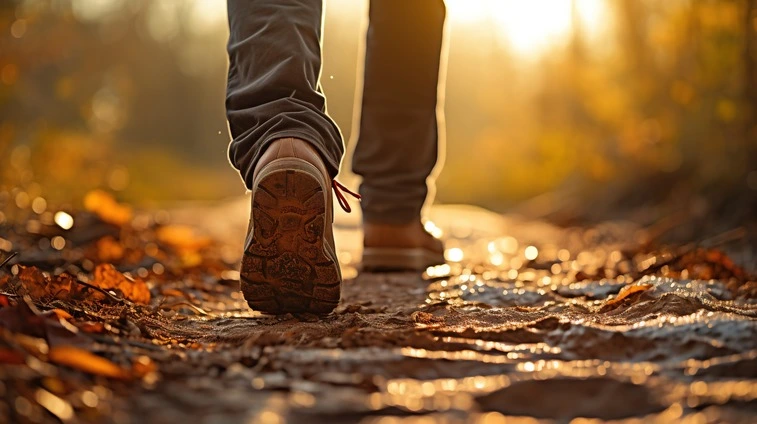Nature possesses a unique and profound ability to soothe troubled emotions and bring a deep sense of tranquility. Research consistently highlights that walking in natural environments not only fosters emotional healing but also sparks creativity and boosts overall well-being. This isn’t just a modern discovery; many influential figures throughout history have harnessed the transformative power of nature walks, incorporating them into their daily routines to enhance their mental clarity and creative output.
Historical and Modern Advocates of Walking for Mental Clarity
Charles Dickens: The celebrated English novelist found long walks to be a rich source of inspiration, fueling his creative process.
Henry David Thoreau: In Walden, Thoreau extolled the virtues of walking as a way to connect deeply with nature and clear the mind.
Steve Jobs: The co-founder of Apple used walking meetings to stimulate creativity and problem-solving, believing that fresh air and movement fostered innovative thinking.
Barack Obama: The former President regularly walked around the White House grounds to clear his mind and reflect on key issues.
Oprah Winfrey: The media mogul incorporates walking into her routine as a meditative practice that keeps her grounded and focused.
Albert Einstein: The legendary physicist often took long walks to work through complex problems and generate new ideas.
Personal Reflections: The Transformative Power of Daily Walks
While I may not be as renowned as Steve Jobs or Oprah Winfrey, I share their deep appreciation for the power of walking. No matter the weather—whether it’s snowing, raining, or sunny—I commit to walking for at least an hour each day. This practice has been a cornerstone of my routine for over a decade, profoundly influencing my well-being and outlook on life.
In the early, stressful days of my entrepreneurial journey, walking in Vondelpark—a picturesque park near my home—offered much-needed relief and clarity. Each time I left the park, I felt rejuvenated and often discovered new solutions to my challenges.
Walking has been my go-to remedy through both joyous and challenging times. Whether I’m celebrating success or navigating difficulties, my routine includes walking, often more intensively during tough periods. During the COVID-19 pandemic and while dealing with a Dutch tax investigation, I made it a point to walk in Vondelpark at least twice a day. Though these walks didn’t always lead to immediate solutions or groundbreaking ideas, they consistently uplifted my spirits and provided relief from mental distress and loneliness.
Why You Should Start Walking in Nature Today
Incorporating a 30-60 minute walk in nature into your daily routine can offer significant mental health benefits, supported by research:
- Stress Reduction: Studies have shown that spending time in nature can significantly lower cortisol levels, which are associated with stress. For instance, a study published in Health & Place found that participants who walked in a natural environment had lower levels of cortisol and reported less stress compared to those who walked in an urban setting (source).
- Improved Mood: Research indicates that physical activity combined with nature exposure boosts endorphins, which enhance mood. A study in the Journal of Environmental Psychology revealed that participants who engaged in physical activities in natural environments reported improved mood and reduced feelings of depression (source).
- Enhanced Creativity: Walking stimulates creative thinking by allowing the mind to wander freely. A study published in The Journal of Experimental Psychology found that walking, especially in nature, can increase creative problem-solving abilities by 60% (source).
- Better Cognitive Function: Nature walks have been shown to improve cognitive function, including clearer thinking and better problem-solving skills. Research from the American Journal of Public Health indicates that exposure to natural environments can enhance cognitive performance and reduce mental fatigue (source).
- Increased Physical Health: Regular walking supports cardiovascular health and overall fitness. The Journal of the American College of Cardiology highlights that walking for 30 minutes a day can significantly lower the risk of cardiovascular disease and improve overall physical health (source).
Tip for Making the Most of Your Walks
Minimize Distractions: To fully benefit from your walk, try to minimize distractions like phones or music. Instead, immerse yourself in the natural world around you. Listen to the chirping of birds, feel the breeze on your skin, and take in the warmth of the sun or the crispness of the snow. Breathe deeply and engage with your surroundings—touch a tree, smell the flowers, or simply savor the sights and sounds of nature. Allow yourself to wander freely and be fully present with your emotions.
By eliminating distractions, you create space for your subconscious mind to work its magic. This openness often leads to unexpected solutions, fresh ideas, or new perspectives. Let nature’s embrace offer you the comfort and clarity that few other experiences can match.
***This chapter is part of an eight-chapter series titled “How to Overcome Difficult Times in Life: Tips, Strategies, and Personal Advice.”
Don’t miss any part of the series! Stay updated and explore the full collection of chapters here:
- Introduction: How To Overcome Difficult Times In Life: Tips, Strategies, And Personal Advice
- Part 1: How to Use Journaling to Clear Your Mind and Boost Emotional Well-Being
- Part 2: How a 30-60 Minute Walk in Nature Can Enhance Your Mental and Physical Health
- Part 3: How to Practice Positive Self-Talk for Better Mental Health
- Part 4: How to Set Small Goals and Achievable Tasks for Success
- Part 5: The Power of Self-Love: Proven Practices for Mental Health and Fulfillment
- Part 6: Why Talking to Family and Close Friends is Crucial for Emotional Support
- Part 7: The Benefits of Practicing Meditation: How to Get Started
- Part 8: The Surprising Health Benefits of Cold Showers: Boost Energy, Reduce Stress, and Build Mental Resilience
Related posts:
 How to Overcome Difficult Times in Life: Tips, Strategies, and Personal Advice
How to Overcome Difficult Times in Life: Tips, Strategies, and Personal Advice
 The Power of Self-Love: Proven Practices for Mental Health and Fulfillment
The Power of Self-Love: Proven Practices for Mental Health and Fulfillment
 Why Talking to Family and Close Friends is Crucial for Emotional Support: A Cross-Cultural Perspective
Why Talking to Family and Close Friends is Crucial for Emotional Support: A Cross-Cultural Perspective
 The Surprising Health Benefits of Cold Showers: Boost Energy, Reduce Stress, and Build Mental Resilience
The Surprising Health Benefits of Cold Showers: Boost Energy, Reduce Stress, and Build Mental Resilience
 How to Stop Feeling Rushed and Anxious: Proven Strategies to Overcome Rush Syndrome
How to Stop Feeling Rushed and Anxious: Proven Strategies to Overcome Rush Syndrome
 Not Every Day is a Win—But Every Day is a Lesson
Not Every Day is a Win—But Every Day is a Lesson

